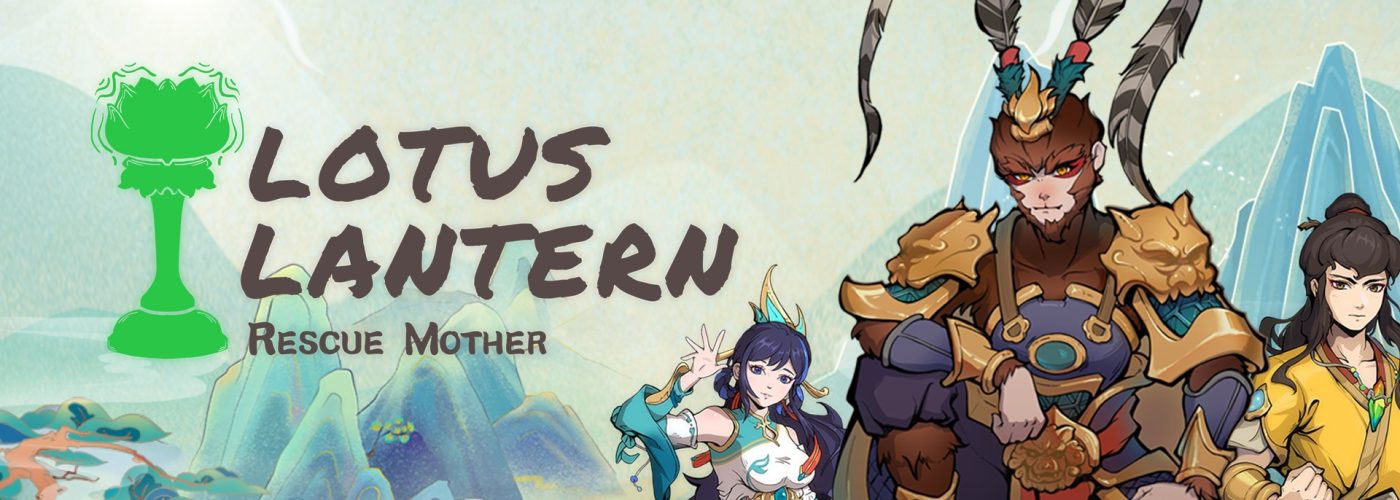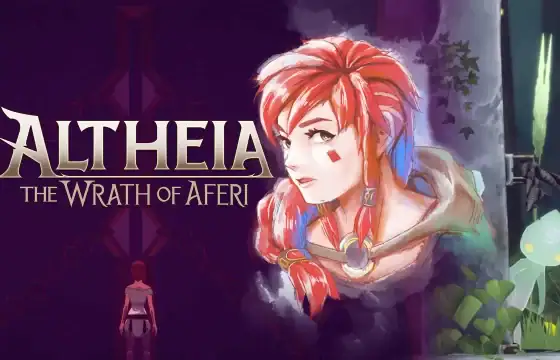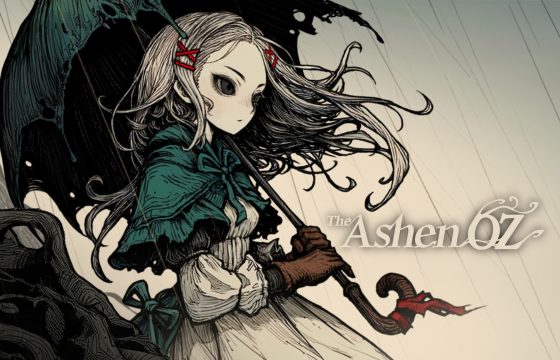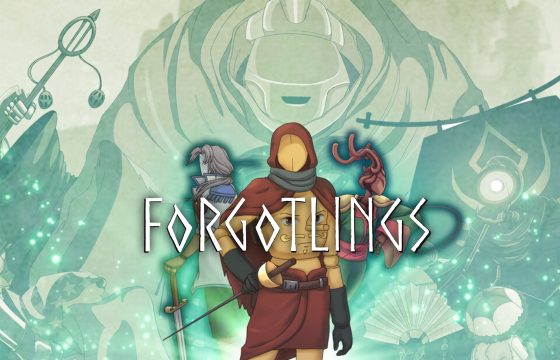Lotus Lantern is a promising top-down action roguelite developed by Unstable Games, with a strong inspiration from Chinese mythology.
The top-down action roguelite genre has had and is having its big stage thanks to independent developers. Direct contact with the public and communication have allowed the constant improvement of these titles. One of the virtuous and most recent examples is that of Hades. Thanks to community feedback and listening to the developers, the game has become an excellence, receiving numerous awards. Lotus Lantern also wants to join this rank. Like Hades, takes inspiration by legendary characters from mythology, with strong reference to action and story.
History and Mythology
As mentioned before, Chinese mythology is the stage where the whole story takes place.
Sanshengmu, goddess of the celestial court, broke the celestial laws of her world: to love a mortal and give birth to a child with him. In light of this she was imprisoned under Mount Hua. The fruit of that forbidden love with a mortal is Chenxiang. The boy lives unaware of everything until he reaches adulthood. Learning the truth, he vowed to save his mother.
During his journey he will not be alone: he will meet other deities such as the Eight Immortals, who will advise him and guide him in his choices. Furthermore, he has a lantern that allows him to return to his rooms even if he were to be defeated in battle. As if that wasn’t enough Chenxiang, being both mortal and god, is trained by Sun Wukong himself. With the help of these deities, Chenxiang will have to overcome numerous battles and defeat fearsome enemies to finally free his mother.


Central Hub
Lotus Lantern‘s adventure begins in the Great Sage Mansion. In our room we have the lantern with which we can permanently improve our skills. The skills are many and can be unlocked with gems that can be collected during our adventures which are called Divine Sensibility. Moving forward we arrive at the Artifact Vault. It contains numerous Artifacts: some available, others unlockable with materials dropped by bosses and others thanks to gems to be recovered in the end game. At the beginning of the adventure we can only choose one artifact.
There are 4 categories: Man, Heaven, God and Heart. As the Lotus Lantern’s adventure progresses we can obtain up to 4 artifacts at the same time. Be careful though! We can only bring one of each type. In the other rooms we can talk to the characters who will gradually appear as the story progresses. Their contribution is basically lore but is still a sign of care for the product from the developers. The last room is where we can test the weapons. At the start we only have 2 choices among the 7 available. The others can be unlocked with the same criteria used for Artifacts. I will describe the weapons and their balance in another chapter.
Lotus Lantern: Stage and Characters
Lotus Lantern has four macro stages: Mount Hua Base, Lake of a Thousand Islands, Kunlun Mountain and Inside of Mount Hua. Each of them have 10 rooms plus two boss challenges: a mid boss after the first 5 and the main boss after the tenth.
There are particular rooms in which we will not encounter enemies but we can find upgrades, shops, material to recover HP and literally a Wheel of Fortune.
We can meet some characters who will appear in different areas and moments of the game, trying to help or dissuade Chenxiang from the mission. The lines of dialogue change depending on how we progress. There is no lack of irony and a certain care in describing past events. This helps the player become more immersed in that world. There are also quests and cross-talk, but don’t expect the depth and quests of Hades.



Lotus Lantern: Upgrades
Lotus Lantern‘s upgrades are numerous and well thought out, and offer numerous synergies. Here is a short list that we can choose from after clearing the room.
The Elemental Blessings of Nuwa which grant the powers of the elements ice, thunder, fire and wind.
The choice of an additional Artifact.
Destiny Plates Bead: gems to set in the 5 slots of an Artifact. These Spheres contain interesting and decidedly strong passive bonuses. With all the 5 Beads, the Artifact increases in power and unlocks an even more powerful ability.
The Technical Manuals that improve the active and passive skills of the weapon we own.
The Divine Sensibility which is the currency to unlock upgrades in the central Hub.
Obtain the Spirit Elements which are the currency to purchase particular skills and conditions from the shops or from the Altars of the Seal.
Only at the beginning and before the end-of-level boss do we have two characters who can increase the bonuses of the Destiny Plates Bead and grant Contact Rules. The latter grants further passive bonuses.
Finally, the bosses and mid bosses drop very strong enhancements to characteristics.
Game Balance is in the Heart
As you noticed, the upgrades present in Lotus Lantern are truly many and well thought out. The possible synergies are countless and their effects are often devastating. The Destiny Plates Bead themselves give notable passive bonuses that can easily break the game. Imagine 5 Artifacts, each with 5 passive and also upgradable abilities that follow the rules of gray, blue, purple and gold colors for legendaries. Basically 25 strong passives which, as if that weren’t enough, increase the power of the Artifact itself.
The other power ups are also strong and some synergies brake the game. Let’s also consider the passive ones to get in Central Hub! Don’t get me wrong, I don’t deny that seeing certain synergies, numbers and enemies melting is truly satisfying. Furthermore, the enemies are not weak, but they are aggressive, they do damage and they are resistant and numerous. We are the ones who are too strong.
An honorable mention to the choice of weapons. All 7 are very original, well thought out, fun to play and obviously devastating. Only 2 of these I found more complicated to use because they imply a more measured style and have a slower escalation than the others.
As fun as all this is, it becomes a shame that after the first stages in which you have to learn the moveset and get to know the opponents and bosses, everything falls apart. In the last two stages there is an almost certain risk of being too strong to cancel everything. A shame because even the bosses and mid bosses are beautiful, original and with a varied, complex and not boring moveset. This is why I say that being too powerful ruins the experience.
Even the end game in which we can add significant bonuses to enemies and penalties to our character does not solve the problem.



My Two Cents
Lotus Lantern is certainly a neat product, with some flaws but really fun. Furthermore, it is the second top-down action roguelite that comes from Chinese developers together with Realm of Ink (read our article).
Although artistically Lotus Lantern is simpler, it is well cared for in that aspect too and certainly pleasing to the eye. The feedback from the hits (both given and taken) is good and fluid, although with so much stuff on the screen you risk having little clarity and sometimes not seeing the opponent’s bullets. Precisely for this reason there are various passives that reduce the damage received from the latter.
Finally, although being able to break the game is a fundamental part of good game design, Lotus Lantern is still too calibrated in favor of the character. Also considering that the story ends after a few complete runs.
In closing, Lotus Lantern still has a long way to go, even if the path taken is the right one. I hope that Unstable Games and 663 Games will listen to the feedback and continue to improve the title, despite some pre-release bugs that are easily fixable.
Give him a chance because we can only gain benefits from supporting this title!
Lotus Lantern: Rescue Mother
PRO
- Fun to play
- Large variety of weapons and upgrades
- Simple but functional style
CON
- Few bugs
- Short story mode
- Too calibrated in favor of the character











